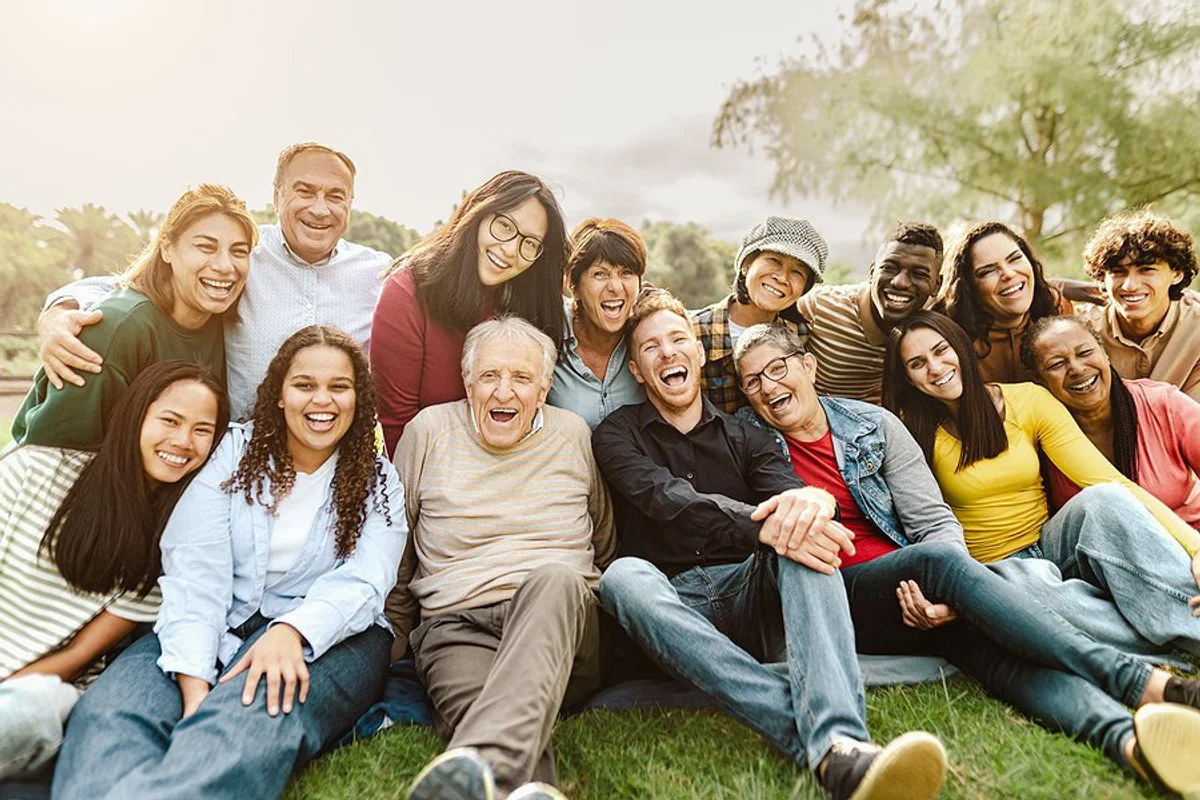In today’s fast-paced and digitally connected world, it’s easy to overlook the importance of face-to-face interactions and meaningful social connections. However, being part of a strong community and maintaining social ties has a profound impact on our mental, emotional, and even physical health. Whether it’s through friendships, family, or participation in community activities, these connections are essential for living a happier and healthier life. In this blog, we’ll explore the importance of social and community connections and offer practical tips for fostering meaningful relationships.
1. The Health Benefits of Social Connections
- Mental Health and Well-Being: Strong social connections are linked to lower rates of anxiety, depression, and loneliness. Engaging in conversations and sharing experiences with friends and family helps boost mood and provides emotional support during tough times.
- Physical Health: Studies show that individuals with strong social networks have lower risks of heart disease, high blood pressure, and other chronic illnesses. Social interactions can also strengthen the immune system and increase life expectancy.
- Stress Reduction: Socializing helps reduce stress by promoting a sense of belonging and support. When faced with challenges, knowing that you can rely on others can significantly lower your stress levels and help you cope more effectively.
2. The Role of Community in Building Social Networks
- Finding Your Tribe: Being part of a community, whether through a shared interest, hobby, or cause, provides a sense of purpose and belonging. Whether it’s a book club, sports team, or neighborhood group, these communities offer opportunities to meet like-minded people and form lasting connections.
- Civic Engagement: Participating in community service or volunteering not only benefits others but also strengthens your own sense of social connection. Giving back can help you meet new people and build stronger ties with those in your community.
- Creating Local Bonds: Engaging with neighbors and local groups fosters a sense of safety and belonging in your community. Organizing or attending local events like block parties, farmers’ markets, or charity runs can help you form strong relationships with people in your area.
3. Social Connections and Aging
- Staying Social as We Age: As we grow older, maintaining social connections becomes even more important. Social isolation in older adults is linked to higher rates of cognitive decline and health problems. Being socially active helps seniors stay mentally sharp, emotionally fulfilled, and physically healthier.
- Intergenerational Connections: Building relationships with people from different age groups—whether through family, mentorship programs, or community activities—offers a range of perspectives and experiences. Intergenerational bonds provide mutual benefits, from wisdom-sharing to emotional support.
- Senior Centers and Social Groups: Many communities offer programs, senior centers, or social groups that cater to older adults. These spaces provide opportunities for older adults to socialize, participate in activities, and stay engaged with their communities.
4. Fostering Social Connections in the Digital Age
- Using Technology to Stay Connected: While face-to-face interactions are ideal, technology offers new ways to maintain relationships, especially when distance is a factor. Video calls, social media, and messaging apps can help you stay in touch with loved ones, no matter where they are.
- Online Communities: In addition to local groups, online communities provide opportunities to connect with people who share similar interests or life experiences. Whether it’s a fitness group, hobbyist forum, or support network, online communities can foster meaningful social connections.
- Finding Balance: While technology can help maintain social ties, it’s important to balance online interactions with real-life connections. Make an effort to schedule face-to-face meetups with friends and family whenever possible, and limit screen time to avoid feeling isolated or overwhelmed.
5. Overcoming Barriers to Social Connection
- Dealing with Social Anxiety: For some, the idea of socializing can be intimidating or anxiety-inducing. Start small by reaching out to a close friend or attending a community event with a trusted companion. Gradually expanding your social circle can help build confidence and reduce anxiety.
- Making Time for Socializing: In today’s busy world, it can be challenging to find time to nurture social connections. However, making relationships a priority by scheduling regular meetups, phone calls, or activities with loved ones can significantly improve your well-being.
- Loneliness vs. Solitude: It’s important to differentiate between loneliness and solitude. While spending time alone can be healthy and recharging, prolonged loneliness can have negative effects on mental and emotional health. If you find yourself feeling isolated, take small steps to reconnect with others or seek support from community resources.
6. Tips for Strengthening Social Connections
- Join Local Clubs or Groups: Whether it’s a book club, sports league, or hobby group, joining a local organization allows you to meet people with similar interests and build lasting connections.
- Volunteer in Your Community: Volunteering is a great way to give back while also meeting new people and forming connections with others who share your values.
- Prioritize Quality Time with Family and Friends: Make an effort to regularly spend quality time with family members and close friends. This could be as simple as a weekly coffee date, a shared meal, or a fun outing.
- Be Open to New Connections: Don’t be afraid to reach out to new people or reconnect with old acquaintances. Expanding your social circle can lead to unexpected friendships and support systems.
- Host Gatherings or Events: Hosting gatherings, whether large or small, can help strengthen your relationships with others and create opportunities for socializing. Consider organizing a potluck, game night, or picnic to bring people together.
Conclusion
Social and community connections are essential for overall well-being, providing emotional support, reducing stress, and improving both mental and physical health. By nurturing your relationships with family, friends, and your broader community, you can lead a more fulfilling and connected life. Whether through face-to-face interactions or online communities, making an effort to stay socially active is key to happiness at any age.
How do you stay connected with your community? Share your tips and experiences in the comments below!

Leave a Reply